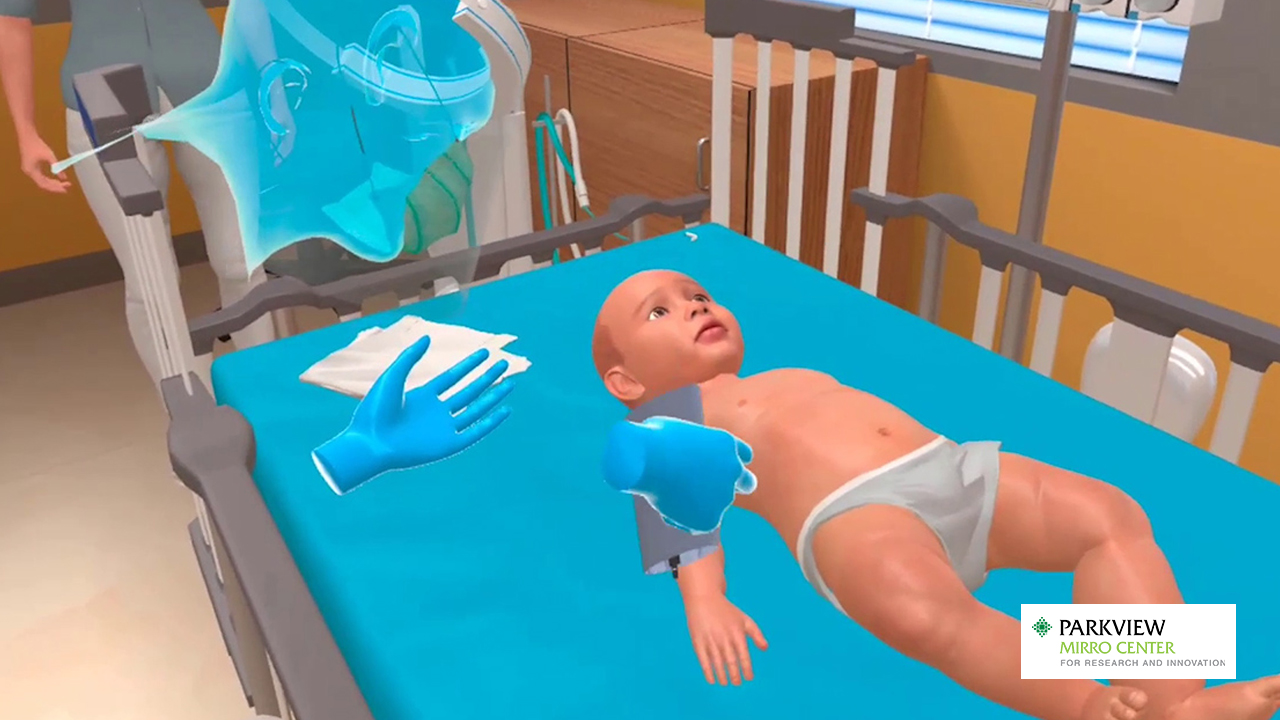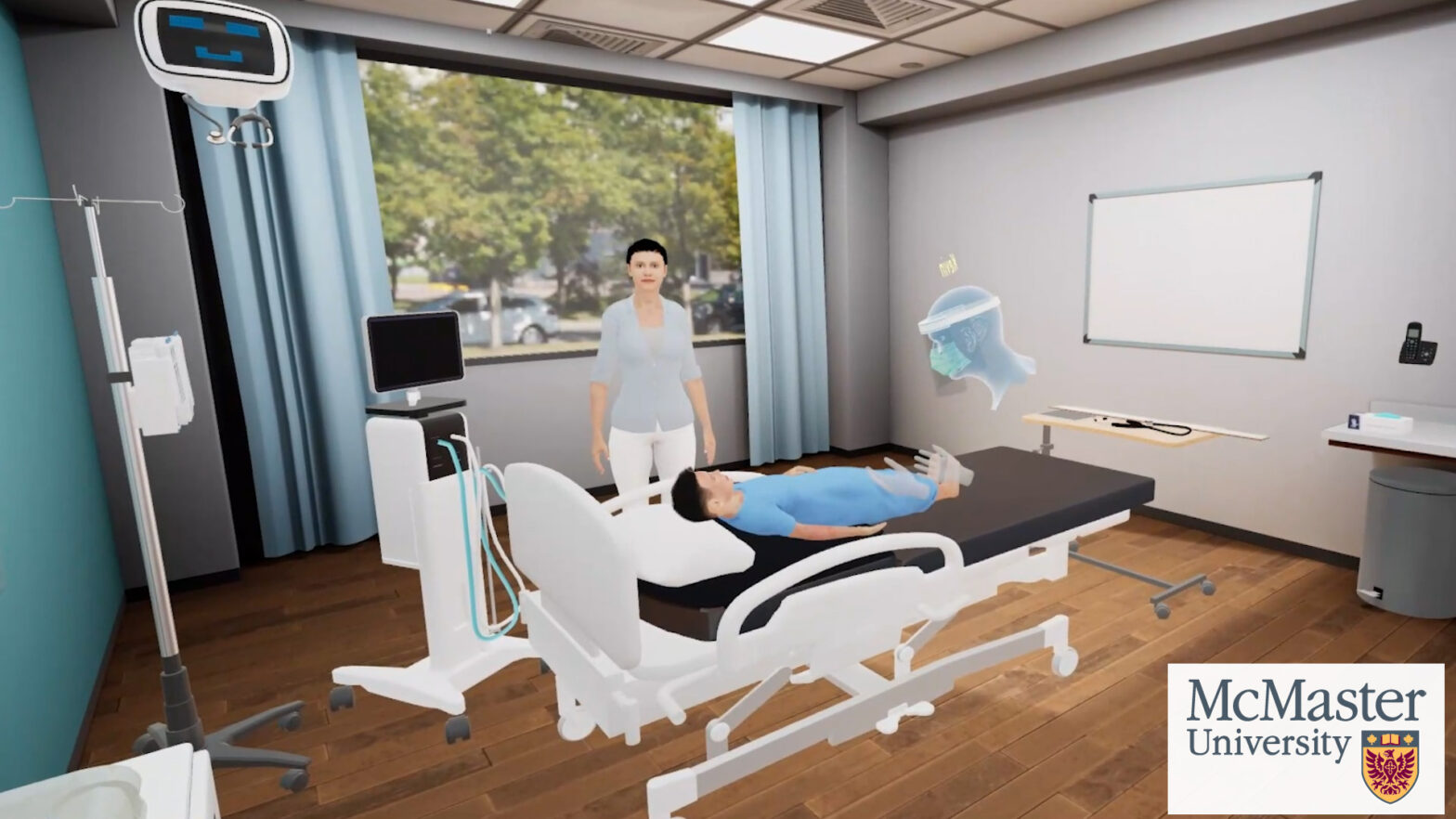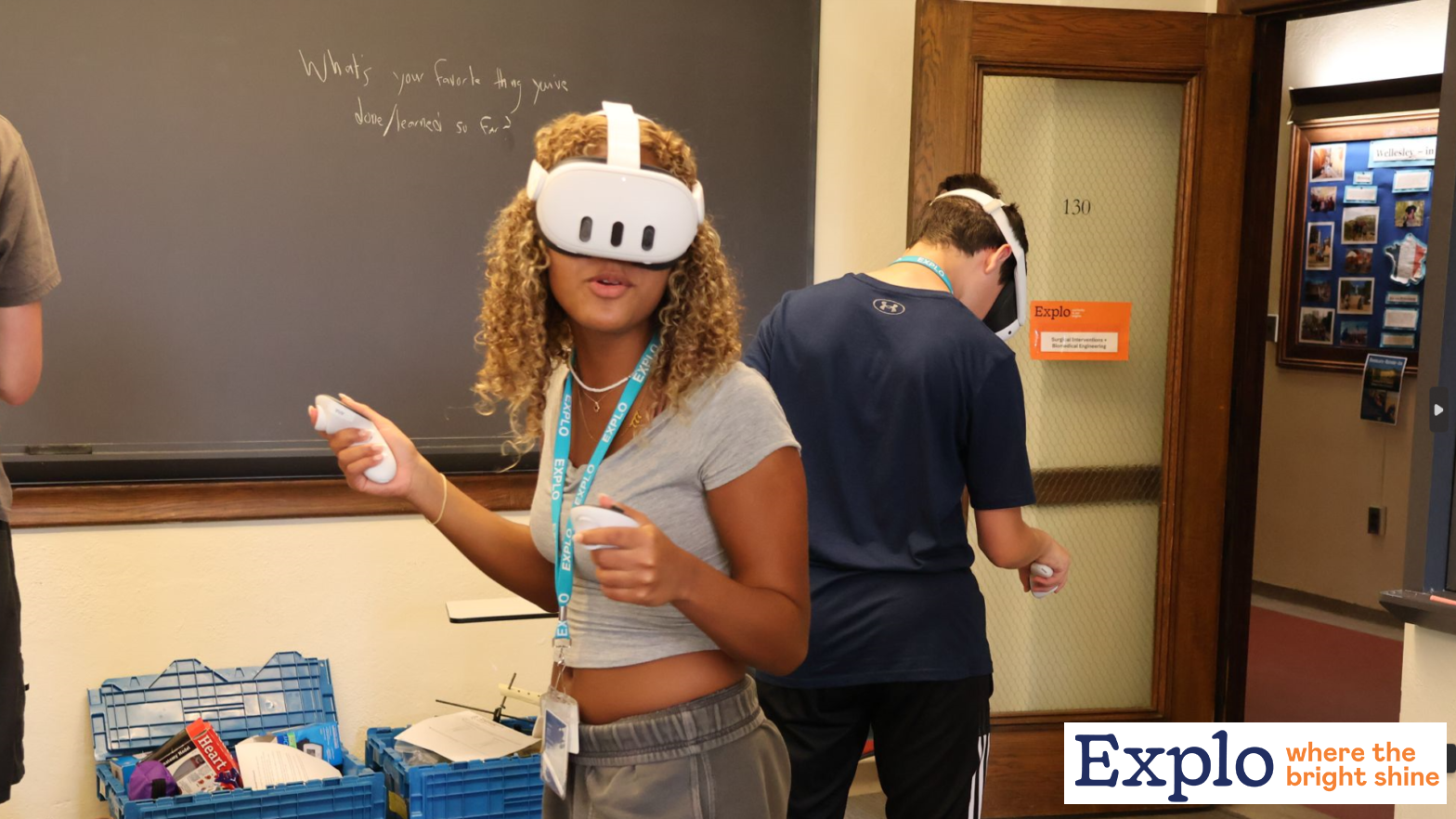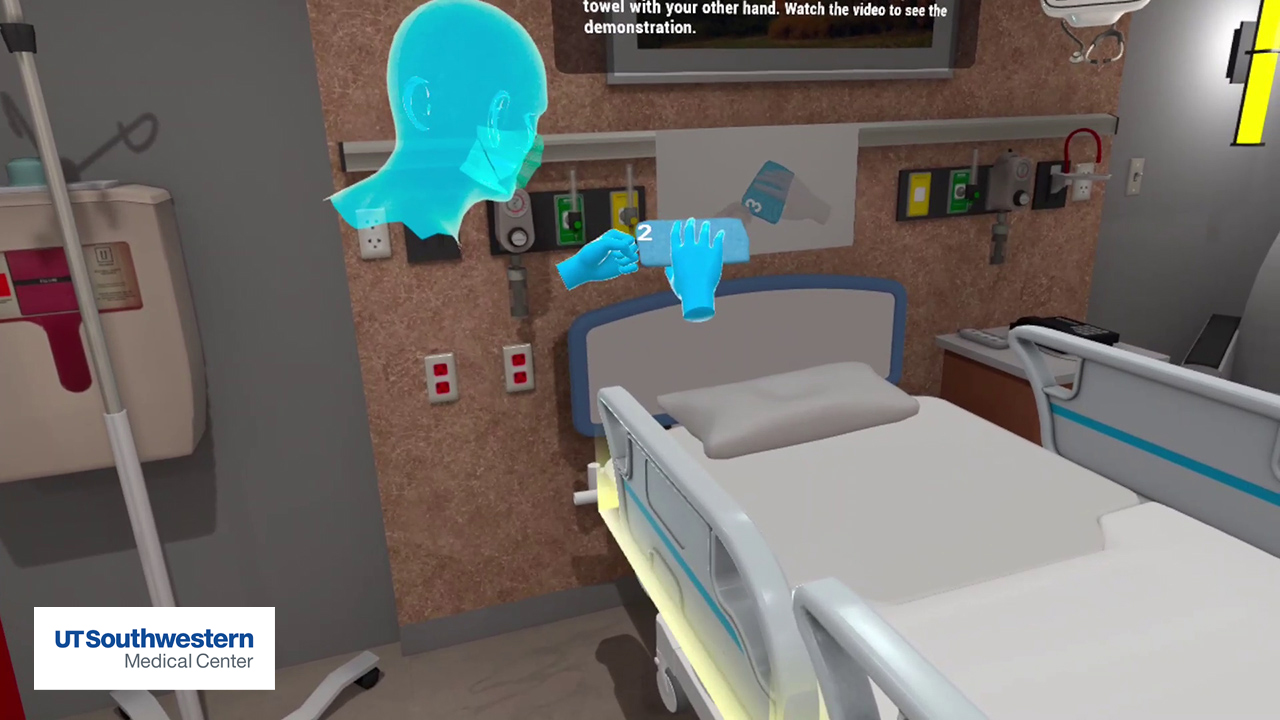
UT Southwestern (UTSW) has recently received recognition and national distinction for “patient satisfaction, patient safety, and quality of care” from various reviewing bodies. A crucial element contributing to this success is its Environmental Services (EVS) department. Quality environmental services, in turn, are a direct result of rigorous training. In a move to introduce innovative immersive training technology, UT Southwestern has joined forces with MedVR Education to build virtual reality EVS training programs. This partnership is revolutionizing healthcare training and elevating the quality of environmental services at UT Southwestern.
The first solution that has been rolled out is for Patient Room Cleaning and has proven to deliver improvements in training outcomes. “We have seen improvements in not only work performance, but also confidence,” said Darrell Martin, Assistant Director Environmental Services, UT Southwestern. Next in line is a solution for Floor Cleaning which is scheduled to be launched very soon.
The Role of Environmental Services in Healthcare Excellence
Environmental Services (EVS) teams play a vital role in maintaining a clean, safe, and welcoming environment for patients, visitors, and staff. Their work directly impacts patient satisfaction and safety, making them integral to the overall quality of care provided by a healthcare institution.
To achieve excellence in EVS, it is imperative that staff are well trained. Traditional training methods have their limitations, and this is where innovative approaches come into play and this partnership with MedVR Education, a pioneer in healthcare training that is actively building the largest XR healthcare training library. Melody Martinez, EVS trainer with UTSW says, “The addition of VR enhanced the different predominant learning styles (Visual, Auditory, Read/Write, and Kinesthetic) we in EVS offer our employees.”
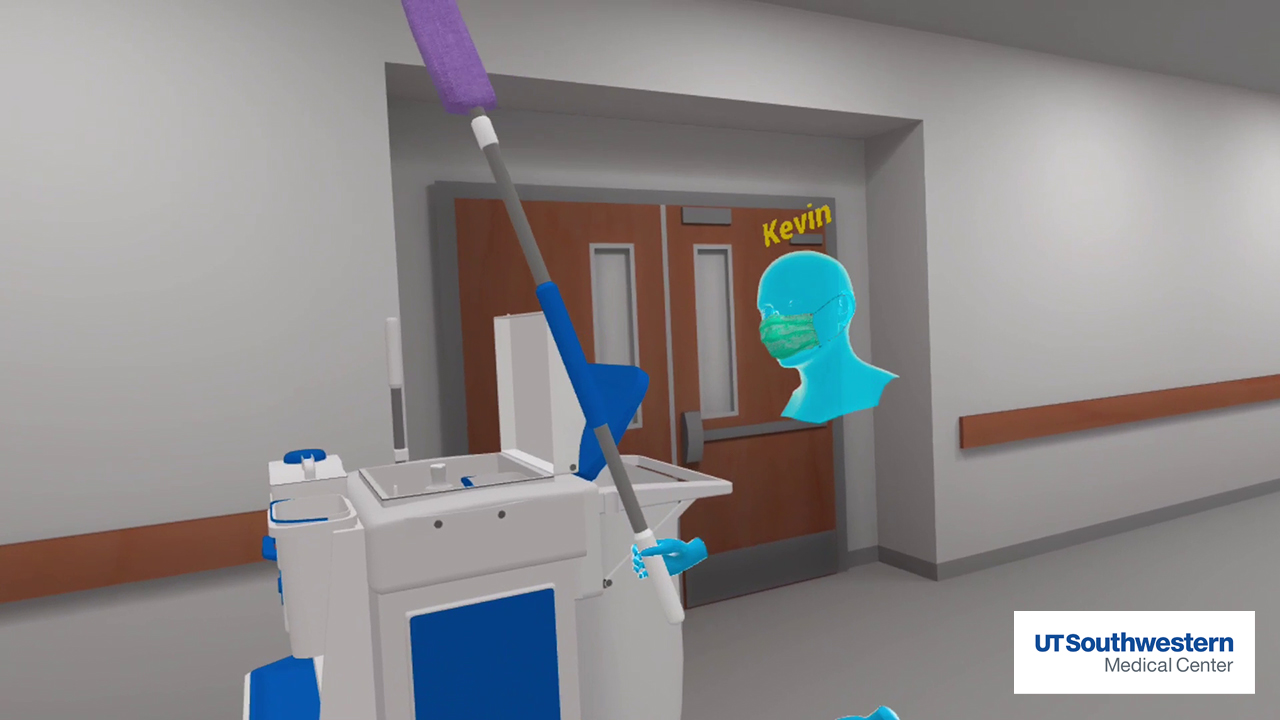
Benefits of MedVR Education VR Simulations
This partnership between UT Southwestern and MedVR Education is designed to provide a realistic, immersive, and experiential training opportunity to learners, ultimately enhancing the quality of environmental services. It is not just meant for novices but can be equally helpful to brush up existing skills.
– Realistic Environment: VR offers an incredibly lifelike training environment that simulates the actual conditions that EVS staff encounter on a daily basis. This level of realism ensures that trainees are better prepared to face challenges in the real world.
– Physics-based Interactions: With the inclusion of physics-based interactions, MedVR Education simulations enable learners to interact with virtual objects and spaces in a way that closely mimics real-world actions. This creates a more realistic and authentic learning experience, allowing users to develop practical skills effectively.
– Customization: MedVR Education simulations can be customized to meet organization specific requirements. This includes the environments and the work processes. As Melony Martinez says, MedVR Education developed “virtual reality learning modules customized with our EVS processes for our employees.”
– Multiplayer Sessions: The simulations from MedVR Education facilitate the participation of multiple users in one given session. They may be located across the globe but come together in one virtual space. This multiplayer mode enables users to perform as a team and complete tasks by cooperating and coordinating. This fosters teamwork, an essential soft skill.
– Train from Anywhere: Training in VR does not require the user to be at a specific place at a specific time. Users are free to train anywhere at any time, as suitable to their work schedule. All that is required is a headset and an internet connection. This flexibility is particularly valuable for healthcare professionals who may have to work at varying hours.
– MedVR Ed Connect: With the MedVR Ed Connect app it is possible to be part of training simulations using a laptop or desktop computer. A VR headset is not required here. Participants can be a part of the simulation and communicate with one another in real time using the voice chat feature. While learners can join to learn, their proctors and instructors can guide the learners, as and when required.
– Thorough Training: VR enables comprehensive and repetitive training, ensuring that staff are thoroughly prepared to handle various situations and challenges. This leads to increased confidence and proficiency in their roles.
– Minimize Dependency on Physical Resources: Unlike traditional training methods that may require actual resources, VR training eliminates the need for physical spaces, materials, and equipment. This means that hospital resources are not engaged in training when they may be required for more pressing needs.
– Cost-effective: When VR is the training mode, there is no need to maintain an elaborate training facility with an inventory dedicated to training. This makes VR training highly economical and cost effective.
The partnership between UT Southwestern and MedVR Education marks a significant step forward in healthcare training. “Immersive training is one of the best ways to learn and practice skills since they provide a realistic experience. What could be better than a realistic virtual setup with all available resources to practice in a controlled environment,” says Rajat Arora, CEO MedVR Education. This collaboration is a testament to the ongoing commitment to excellence in healthcare, and it’s sure to inspire similar innovations in the industry.
Contact us to know more about VR in healthcare training, or visit our MedVR Education webpage to explore the various programs we offer.
